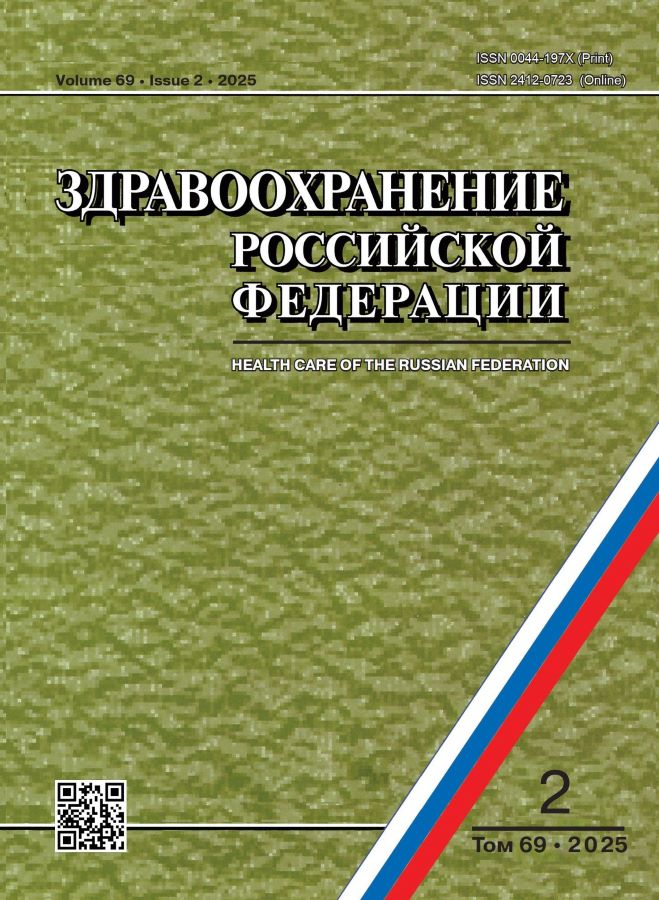Отто фон Бисмарк или Карл Маркс: финансирование медицинских гарантий населению взносами с зарплат или налогом с оборота?
- Авторы: Рагозин А.В.1, Гришин В.В.1, Дудник А.И.1
-
Учреждения:
- ФГБОУ ВО «Финансовый университет при Правительстве Российской Федерации»
- Выпуск: Том 69, № 2 (2025)
- Страницы: 175-181
- Раздел: ИСТОРИЯ ЗДРАВООХРАНЕНИЯ И МЕДИЦИНЫ
- Статья получена: 26.05.2025
- URL: https://vestnik.nvsu.ru/0044-197X/article/view/680576
- DOI: https://doi.org/10.47470/0044-197X-2025-69-2-175-181
- EDN: https://elibrary.ru/vkwvfr
- ID: 680576
Цитировать
Полный текст
Аннотация
В статье исследуются обстоятельства, которые позволили Советскому Союзу быстро создать в 1920–1930 гг. первую в мире систему всеобщего охвата услугами здравоохранения (universal health coverage, UHC), опередив большинство развитых стран Организации сотрудничества и экономического развития (ОЭСР). При этом если страны ОЭСР создали свои системы UHC в условиях бурного экономического роста в период «золотого века капитализма» (1945–1975 гг.), то достижение UHC в СССР происходило в крайне неблагоприятных экономических условиях. Анализируя успех здравоохранения СССР, авторы делают вывод о важной роли отказа в его финансировании от налогообложения фонда оплаты труда (так называемой системы Бисмарка) в пользу инновационного советского налога с оборота предприятий, источник идей для которого авторы нашли в произведениях К. Маркса и В. Ратенау. Авторы видят перспективы использования советской налоговой инновации в XXI в.Участие авторов: Рагозин А.В. — концепция исследования, написание текста, составление списка литературы; Гришин В.В. — сбор и обработка материала; Дудник А.И. — редактирование. Все соавторы — утверждение окончательного варианта статьи, ответственность за целостность всех частей статьи.Финансирование. Статья подготовлена по результатам исследований, выполненных за счёт бюджетных средств по государственному заданию ФГБОУ ВО «Финансовый университет при Правительстве Российской Федерации».Конфликт интересов. Авторы декларируют отсутствие явных и потенциальных конфликтов интересов в связи с публикацией данной статьи.Поступила: 03.12.2024 / Принята к печати: 19.02.2025 / Опубликована: 30.04.2025
Об авторах
Андрей Васильевич Рагозин
ФГБОУ ВО «Финансовый университет при Правительстве Российской Федерации»
Email: avragozin@fa.ru
Владимир Вадимович Гришин
ФГБОУ ВО «Финансовый университет при Правительстве Российской Федерации»
Email: vvgrishin@fa.ru
Анна Игоревна Дудник
ФГБОУ ВО «Финансовый университет при Правительстве Российской Федерации»
Email: aidudnik@fa.ru
Список литературы
- Busse R., Blümel M., Knieps F., Bärnighausen T. Statutory health insurance in Germany: a health system shaped by 135 years of solidarity, self-governance, and competition. Lancet. 2017; 390(10097): 882–97. https://doi.org/10.1016/S0140-6736(17)31280-1
- OECD. Artificial Intelligence and the Labour Market. Paris; 2023.
- Shishkin S., Sheiman I. The hard way from the Beveridge to the Bismarck model of health finance: Expectations and reality in Russia. Front. Public Health. 2023; 11: 1104209. https://doi.org/10.3389/fpubh.2023.1104209
- Маркс К., Энгельс Ф. Капитал. Том 4: Теории прибавочной стоимости. М.; 1962.
- Бухарин Н.И., Преображенский Е.А. Азбука коммунизма: популярное объяснение программы Российской коммунистической партии большевиков. Екатеринбург; 1919.
- Ратенау В. Новое хозяйство. М.; 1923.
- Содномова С.К., Леонтьева Ю.В., Майбуров И.А., Киреенко А.П. Исторические аспекты эффективного использования налоговых инструментов для целей индустриализации экономики СССР. Вестник УрФУ. Серия: Экономика и управление. 2019; 18(2): 291–313. https://doi.org/10.15826/vestnik.2019.18.2.015 https://elibrary.ru/pafhyf
- Караваева И.В., Мальцев В.А. Приоритеты бюджетной политики в период индустриальных преобразований 1920–1930-х годов. Финансы и кредит. 2008; (15): 67–75. https://elibrary.ru/hvfnjj
- Бачурин А.В. Прибыль и налог с оборота в СССР. М.; 1955.
- Малафеев А.Н. История ценообразования в СССР: 1917–1963. М.: Мысль; 1964.
- Майзенберг Л. Ценообразование в народном хозяйстве СССР. М.; 1953.
- Ровинский Н.Н. Государственный бюджет СССР. М.: Госфиниздат; 1944.
- King M.A. The Cash Flow Corporate Income Tax. Cambridge: National Bureau of Economic Research; 1986.
- Adisah-Atta I. Financing health care in Ghana: Are Ghanaians willing to pay higher taxes for better health care? Findings from Afrobarometer. Soc. Sci. 2017; 6(3): 90. https://doi.org/10.3390/socsci6030090
- The World Bank. Health Financing in Ghana. Geneva; 2012.
- Sajadi H.S., Ehsani-Chimeh E., Majdzadeh R. Universal health coverage in Iran: Where we stand and how we can move forward. Med. J. Islam. Repub. Iran. 2019; 33: 9. https://doi.org/10.34171/mjiri.33.9
- WHO. Tax-based financing for health systems: options and experiences. Geneva; 2004.
- Bird R., Gendron P.P. Is VAT the best way to impose a general consumption tax in developing countries? Bull. Int. Taxat. 2006; 60(7): 287–96.
- Feige E.L. Starting Over: The Automated Payment Transaction Tax. Madison: University of Wisconsin; 2001.
- Feige E.L. Taxation for the 21st century: the automated payment transaction (APT) tax. Economic Policy. 2000; 15(31): 474–511. https://doi.org/10.1111/1468-0327.00067
- Cintra M. Bank transactions: pathway to the single tax ideal A modern tax technology; the Brazilian experience with a bank transactions tax (1993–2007). Available at: https://mpra.ub.uni-muenchen.de/16710/1/MPRA_paper_16710.pdf
Дополнительные файлы









